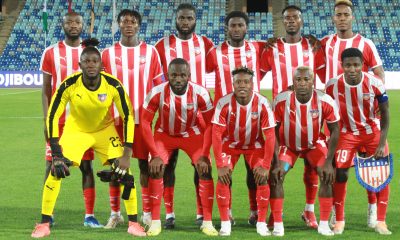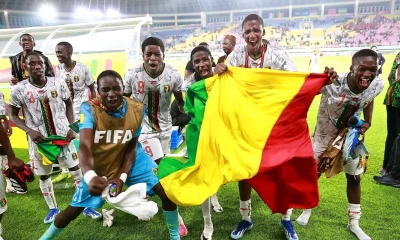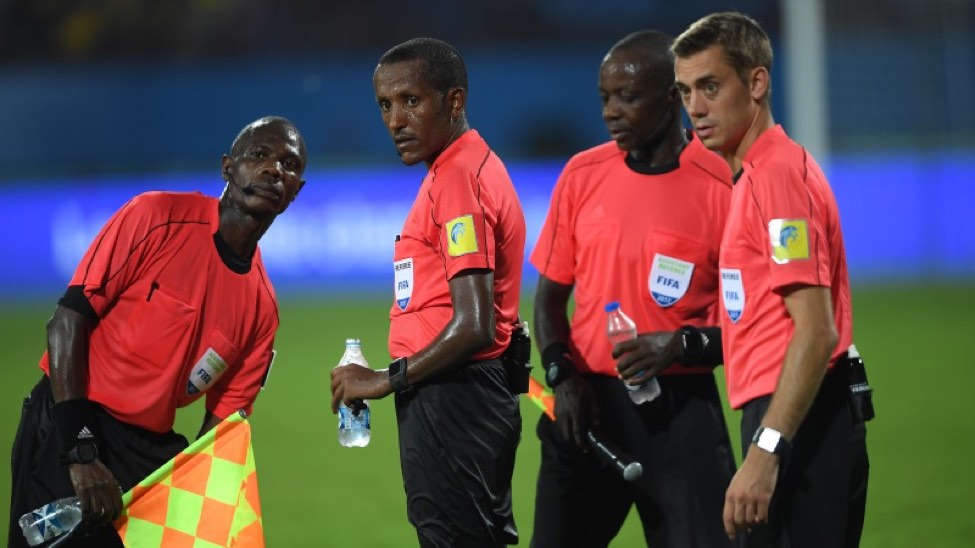Africa calls some of the world’s finest athletes among its sons and daughters: Kip Keino, George Weah, Montsho Amantle, Charl Schartzel, Yaya Toure, Ahmed Hassan, Kenenisa Bekele, Haile Gebrselassie, and Blessing Okagbare to name just a few. Yet, the sports industry in Africa struggles to keep up with the rest of the world. International sports media on the continent is virtually nonexistent.
The Sports Media Vacuum in Africa
In a developed, sports-obsessed nation like the United States, there’s no shortage of sports news. You’ve got Yahoo! Sports, ESPN, Bleacher Report, and many other major sports media authorities. But in Africa, where sports are just as beloved and the talent world class, sports coverage is minimal.
You may find a few regional sports news websites here and there, but you won’t find anything close to Bleacher Report. ESPN International no longer operates in Sub-Saharan Africa, North Africa, the Middle East, and Israel. Sports coverage is better in South Africa, but it’s been accused of being lopsided, largely ignoring the contributions of female athletes. And, if you’re an African sports fan living overseas, you’ll have to search diligently for news of your favorite sports teams.
Ducor Sports aims to change that. Ducor Sports is a digital media company entering the fledgling African sports industry. It provides real-time coverage of Africa’s sport teams and players around the world with an emphasis on delivering opinion-oriented analysis and multimedia programming.
Does Africa Support Sports?
Though there’s clearly a need for real-time sports coverage and analysis in the African sports industry, it’s not necessarily going to be easy. Political instability and poverty, for example, continue to plague the continent. In the north, Egypt has detained militant sports fans, labeling them terrorist organizations. To be fair, these weren’t your run-of-the-mill fans merely cheering on their own teams; they were involved in political protests.
Many of Africa’s top athletes leave for more lucrative opportunities, a phenomenon known as “muscle drain.” Some African athletes, such as Didier Drogba and Yaya Toure, are better known for their football endeavors in Europe than they are in Africa.
African nations have demonstrated that they value sports. South Africa and Nigeria both have government agencies dedicated to sports development. South Africa’s Department of Sports and Recreation’s vision is simple: An active and winning sport nation. Nigeria’s National Sports Commission is charged with [perfectpullquote align=”full” cite=”” link=”” color=”” class=”” size=””]”promoting physical fitness and well being of all Nigerians and developing sporting activities nationally to levels that are internationally competitive.”[/perfectpullquote]
The German Federal Ministry for Economic Cooperation and Development also sees the value of sports development in Africa and has launched a multi-state project operating in Ethiopia, Kenya, Namibia, and Togo to use sports as a means of achieving development objectives. In its program description, the ministry noted that[perfectpullquote align=”full” cite=”” link=”” color=”” class=”” size=””] “…team sports can foster mutual understanding and strengthen social skills, such as the ability to cope with losing, and demonstrate the importance of fairness and tolerance.”[/perfectpullquote]
The people of Africa love sports with football, wrestling, and cricket all popular. Every four years, Africa has its own version of the Olympics sanctioned by the International Olympic Committee, the All Africa Games. Africa is also well-represented in the International Olympics, particularly in track and field events.
So, while mainstream sports media as we know it in the United States is lacking throughout much of Africa, it’s clear that African nations — and the people of Africa — love sports and are hungry for African sports coverage.
Internet Access in Africa
Africa is a developing continent, lacking the infrastructure and penetration rates of more developed regions of the world. For example, while Nigeria had more than 67 million Internet users in 2014, this represents just under 38 percent of its population. Meanwhile, the United Kingdom had fewer Internet users (57 million), but that number represents nearly 90 percent of the UK’s total population.
Meanwhile, smartphone use is on the rise with South Africa, Egypt, and Nigeria all in the world’s top 25 countries for smartphone growth for 2013-2018. Growth in this area will put the Internet, and digital media tools such as Ducor Sports, in the hands of more and more Africans. For those where Internet access is not an issue, Ducor Sports delivers much needed coverage of some of the world’s finest athletes in Africa.
Ducor Sports understands the challenges ahead as well as the opportunity. Sports fans across the continent — and around the world — crave access to their favorite teams; they want to learn more about their favorite athletes; they want a deeper understanding of sports stories as they unfold. While governments are starting sports programs to foster the development of fair play, respect, tolerance, and team spirit, Africa has been lacking comprehensive, interactive digital sports media. Until now.
Ducor Sports will fill this void, helping Africa’s developing sports industry get the attention it deserves and holding athletes, teams, and officials to the highest of standards.
Illustration by Wendo Abuto
















